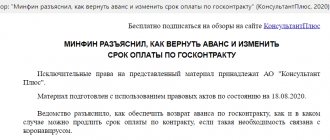The most important thing about how SNT is registered with the tax office in 2021, the documents for registering SNT and the registration deadlines, in accordance with the current legislation of the Russian Federation, will be explained in detail by a lawyer specializing in the registration of non-profit organizations.
A gardening or vegetable gardening partnership is a non-profit organization (NPO) created voluntarily by citizens to organize gardening, vegetable farming and summer cottage farming. Any person who is a tenant, owner of a plot located on the relevant territory, as well as citizens wishing to purchase such plots in accordance with land legislation, or with the subsequent provision of a land plot in state or municipal ownership to the partnership, can become a participant in such an organization.
- Purpose of SNT
- Law on gardening non-profit partnership
- Activities of SNT
- Step-by-step instructions for registering SNT
- SNT registration address
- Documents for registration of SNT
- SNT Charter
- SNT registration deadlines
- Registration fee
Purpose of SNT
The Partnership is created for the following purposes:
- creation of favorable conditions for citizens to carry out gardening and vegetable gardening (providing thermal and electrical energy, water, gas, drainage, management of solid municipal waste, improvement and protection of the gardening or vegetable farming territory, ensuring fire safety of the gardening or vegetable farming territory and other conditions);
- assistance to citizens in the development of land plots within the boundaries of the horticulture or truck farming area;
- assistance to members of the partnership in interaction with each other and with third parties, including with state authorities and local governments, as well as the protection of their rights and legitimate interests.
You can find out about the features of SNT in 2021 on the page Features of SNT in 2021.
Law on gardening non-profit partnership
At the legislative level, the activities of partnerships are regulated by the following regulations:
- Civil Code of the Russian Federation;
- Federal Law On the conduct of gardening and vegetable gardening by citizens for their own needs and on amendments to certain legislative acts of the Russian Federation dated July 29, 2017 N 217-FZ;
- Land Code of the Russian Federation dated October 25, 2001 N 136-FZ.
Step-by-step instruction
Step 1
Preparation for registration of the newly elected chairman of the SNT begins with the general meeting of its members, namely with the keeping of the Minutes. It makes no sense to describe the re-election procedure itself - it goes differently for everyone, depending on the temperament of gardeners and gardeners. Somewhere they silently agree with the nominated candidate, so as not to be held accountable themselves. And somewhere, on the contrary, they go wall to wall, rejecting the candidate proposed by the Board and promoting their own. Whatever the outcome of the meeting, two points are important:
- 1. 50% of the total number of SNT members must be present;
- 2. The decision to re-elect the chairman is made based on the consent of the majority of voters.
Let's return to the Protocol. This is an official legally binding document. Despite the fact that there is no single form for this document, it must be filled out in accordance with the requirements of Federal Law No. 217.
Activities of SNT
The main activities of SNT are:
- ensuring joint use of common property;
- maintenance, maintenance, operation, improvement and repair of common property;
- financing the joint use, maintenance, operation, development of common property, including accepting payments, paying for the services of resource suppliers and contractors, preparing documents for receiving subsidies, subsidies, attracting loans and borrowings;
- registration of rights to real estate;
- protection of common property, adjacent territory, property of property owners;
- maintenance and improvement of the surrounding area;
- current or major repairs of property owners and common property;
- construction and reconstruction of real estate;
- representing the interests of owners and owners of premises in relations with third parties regarding the activities of the Partnership;
- consulting owners and owners of premises on the activities of the Partnership;
- lease and/or use of common property, premises, facades, building elements, adjacent territory;
- maintaining a register of owners and owners of real estate;
- carrying out other types of activities that are not prohibited and do not contradict the current legislation of the Russian Federation.
The Partnership may also carry out other types of activities that are not prohibited by the legislation of the Russian Federation and correspond to the goals of the Partnership.
How to leave SNT
You can not only join a gardening partnership, you can also leave it, both voluntarily and forcibly.
If you decide to voluntarily leave SNT, then you need to write a statement to the board of the partnership. Consideration of the application by all members of the SNT, as happens when joining the organization, is not required. The day of submission of the application is considered the day of termination of membership in the partnership.
The reason for forced termination of membership in SNT is failure to pay membership fees for more than two months, unless the charter of the gardening partnership provides for another period. The issue of expulsion is adopted at the general meeting of SNT members. A month before it is held, the chairman of the partnership sends a warning to the defaulter with a recommendation to pay membership fees. If the recommendation is not followed, the member of the SNT is expelled.
As you can see, it is quite easy to join a gardening partnership and even easier to leave. We hope our recommendations helped you understand this issue.
SNT registration procedure
- It is necessary to decide on the founders of SNT (for registration of SNT a minimum of 7 (seven) founders )
- It is necessary to form the governing bodies of SNT: the sole executive body is the chairman of SNT; SNT board; auditor
- It is necessary to determine the legal address of SNT
- It is necessary to decide on the types of activities and goals of creating a partnership
- Once all the main points have been determined, it is necessary to collect a set of documents and submit them to the tax office for registration.
The applicants are all the founders and, accordingly, they submit documents to the Federal Tax Service in person, or they all certify the application in form P11001 with a notary.
SNT registration address
As a legal address, you can use the real location of the partnership, or the home address of the Chairman (the founder’s residential premises-apartment can be the legal address of the organization, but the apartment must be owned by the founder (shared ownership is also allowed). It is desirable for the founder to have registration (registration) at this address).
Based on the Law, there may be different SNT on different streets.
The Federal Law on the conduct by citizens of gardening and vegetable gardening for their own needs and on amendments to certain legislative acts of the Russian Federation dated July 29, 2017 N 217-FZ defines the provisions of members and the procedure for interaction with owners who are not members of SNT, who are also required to make contributions for use of partnership property (Chapter 3).
Registration of SNT documents
To prepare documents you will need the following documents:
- letter of guarantee + copy of the certificate of ownership (please note that the letter of guarantee must indicate the full address of the premises in accordance with the certificate of ownership (if any: building, building, floor, office/premises number, etc. If the legal address coincides with the place of registration of the manager, then it is necessary to provide a copy of the certificate of ownership and the consent of all owners;
- passports of the founders and director;
- TIN numbers of founders and managers.
You also need to decide on the following questions:
- full and abbreviated name (+ in a foreign language, if required)
- Contact phone number and email for the Federal Tax Service
- taxation system (OSNO, simplified tax system (6 or 15%))
The list of documents for submission to the Federal Tax Service includes:
- charter (original and archival copy);
- a protocol containing comprehensive information about the organization: goals, information about the founders, governing body, etc.;
- application in form P11001;
- application in form 26.2-1 (if it is planned to switch to a simplified taxation system);
- receipt of payment of state duty;
- documents at the legal address.
The decision to establish a partnership is made by citizens (founders) unanimously at their general meeting through in-person voting.
The decision on the establishment of a partnership shall contain information on the establishment of the partnership, approval of its charter, on the procedure, size, methods and timing of the formation of the property of the partnership, on the election (appointment) of the sole executive body of the partnership (chairman of the partnership), the permanent collegial executive body of the partnership (board) and the audit commission (auditor).
The board of the partnership is accountable to the general meeting of members of the partnership.
Accounting support
Zero 1500 rub. Activity 3500 rub. Activities + Salary 5000 rub.
• Personal accountant • Possibly remotely • 12 years of experience • 1000+ NGOs • All forms • Grants
Call your accountant right away
*The cost in Moscow and Moscow Region, St. Petersburg and Leningrad region is respectively: 2000, 5000, 7000 rubles
Call
Your own gardener
It is no secret that such a problem really exists, and it not only causes conflict situations, but also gives rise to a lot of questions for those who are members of a garden or dacha partnership and regularly pay all the dues to the SNT. In almost every gardening association you can find those who have their own views on general contributions.
An individual gardener and a member of SNT must pay the same amount for the use of common property
The situation is so acute that even the courts, when dealing with such disputes, do not always resolve them correctly. That is why clarifications from the Supreme Court at the beginning of the next gardening season can be very useful.
So, the gardening partnership filed a lawsuit against a citizen who worked and rested on the territory of this SNT, but was not a member of it. In legal language, such a person is called a “private gardener.”
Since this gardener had not paid membership fees for two years, but was quietly using the local infrastructure and “public property,” SNT asked the court to collect the debt and penalties from the citizen for two years.
The partnership also asked the court to oblige the defendant to sign an agreement with the partnership, the same as that signed by the members of the gardening partnership.
The defendant did not remain in debt and, for his part, filed a counterclaim - he agrees to sign an agreement with SNT, but on his own terms. According to the individual gardener, the board of the partnership should describe in detail how much he should be paid for each local infrastructure facility separately. And the defendant citizen demanded that for each infrastructure facility he be provided with formulas by which in each individual case the cost of using the common property of SNT was calculated.
Legal features of the functioning of SNT in the “Legal Consultation” section are explained by RG experts
The district court satisfied SNT's claim, but not completely, but partially. He did it in the following way: he collected the debt from the summer resident to pay general contributions, but refused to oblige him to sign an agreement with the gardening partnership for the use of the village’s infrastructure.
As for the counterclaim, the individual gardener was out of luck - the court did not agree with his demands to the board of the gardening partnership. And the court justified its refusal as follows.
According to the law on gardening partnerships, the district court said, the version of the contract proposed by the summer resident, with a detailed division for each object and formulas, is illegal and violates the rights of other gardeners.
Therefore, the court cannot force the board of the gardening partnership to sign the defendant’s version of the agreement. The individual summer resident's counterclaim was completely denied.
The appeal agreed with this decision of its district colleagues, but the Supreme Court did not. And this is what the Supreme Court did not agree with in this solution to the “dacha” conflict.
The district court, considering this dispute, stated that a citizen who gardens individually has the right to demand to conclude an agreement, but a gardening partnership does not have such a right.
To which the Supreme Court reminded its colleagues - according to the Civil Code (Article 421), citizens and legal entities are free to enter into an agreement. They cannot be forced to enter into an agreement, except in cases where the obligation to sign the agreement is prescribed by law or if there is a voluntarily accepted obligation.
Another article of the same Civil Code (445th) says verbatim the following - if the conclusion of an agreement is mandatory, and one of the parties stubbornly avoids this, then the other has the right to go to court with a demand to compel the signing of the agreement. In this “forced” case, the contract is considered concluded from the moment the court decision enters into legal force.
The Supreme Court emphasized that the law on gardening partnerships states that citizens have the right to garden individually. At the same time, they have the right to use the infrastructure and common property of the gardening partnership.
It is specially emphasized that individual gardeners must use the common benefits for a fee and under the terms of an agreement concluded with the partnership “in writing and in the manner determined by the general meeting of members.”
But such “individualists,” and this is emphasized in the law, are deprived of the right to enjoy the benefits of their garden partnership in the event of non-payment under the contract and on the basis of a decision of the board or general meeting. Another important point that was drawn to the attention of colleagues by the Judicial Collegium for Civil Cases of the Supreme Court of the Russian Federation is that the amount of payment from both an individual gardener and a member of the SNT should be the same. The conclusion from all that has been said: the conclusion of an agreement on the use of infrastructure facilities of a gardening partnership for individual gardeners is mandatory by law. The high court also clarified that both the gardening partnership itself and an individual gardener could file a claim to force them to sign an agreement with SNT. But denying the board of a gardening partnership the right to file such a claim, as the district court said, is illegal.
But that's not all. The High Court confirmed not only the rights of the gardening partnership, but also the rights of the gardener who wants independence from SNT. The Supreme Court said that the local court had no grounds for “leaving the gardener’s counterclaims unsatisfied.”
And the Supreme Court reminded about the Civil Code. It contains article 445. It lists the conditions under which the contract is considered concluded from the moment the court decision enters into force. Therefore, the district court’s reference to the fact that the version of the agreement of an individual summer resident does not comply with the law on gardening partnerships, violates the rights of SNT members, does not relieve the court from the need to clearly spell out the conditions under which an agreement between an individual gardener and the partnership should be concluded.
As a result, the Judicial Collegium for Civil Cases of the Supreme Court of the Russian Federation decided to cancel the decisions of local courts adopted on this dispute and reconsider the “dacha” dispute anew, but taking into account the comments made by the Judicial Collegium for Civil Cases of the Supreme Court of the Russian Federation.
SNT Charter
The charter of the partnership must indicate:
- name of the partnership;
- organizational and legal form of the partnership;
- location of the partnership;
- the subject and goals of the partnership’s activities;
- the procedure for managing the activities of the partnership, including the powers of the bodies of the partnership, the procedure for making decisions by them;
- the procedure for admission to membership of the partnership, withdrawal and expulsion from the membership of the partnership;
- the procedure for maintaining the register of members of the partnership;
- rights, duties and responsibilities of members of the partnership;
- the procedure for making contributions, the liability of members of the partnership for violation of obligations to make contributions;
- composition, procedure for formation and powers of the audit commission (auditor);
- the procedure for acquiring and creating common property of the partnership;
- procedure for changing the charter of the partnership;
- procedure for reorganization and liquidation of the partnership;
- the procedure for providing members of the partnership with information about the activities of the partnership and familiarization with the accounting (financial) statements and other documentation of the partnership;
- the procedure for interaction with citizens engaged in gardening or vegetable farming on land plots located within the boundaries of the gardening or vegetable farming territory, without participation in the partnership;
- the procedure for making decisions at the general meeting of members of the partnership by absentee voting.
Support the author
Friends, write your opinion on this topic in the comments. Was the article helpful to you?
If you liked the article, then Fr. Thanks to everyone who supports the articles. You can also support me if you wish in any convenient way:
Sberbank: 5469 1300 1497 3745 (or by number +79034206660, the number is linked to the card)
Tinkoff: 4377 7237 4482 6268 (or by number +79034206660, the number is linked to the card)
QIWI +79034206660
Yandex. Money 410017980298943
Thank you!





